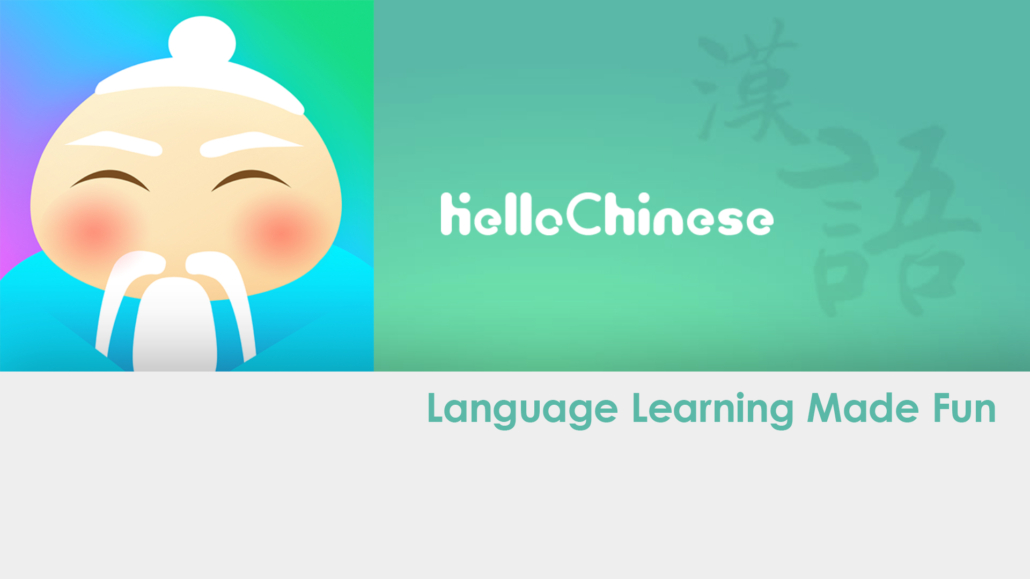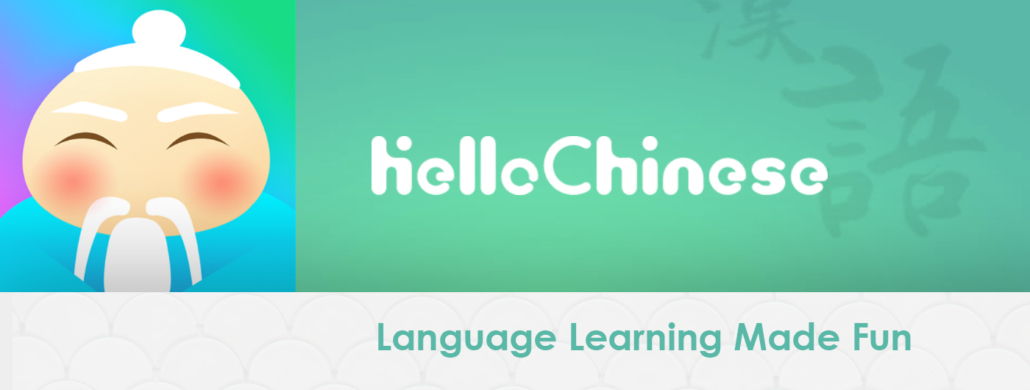HelloChinese: The app for people to use whenever they want
by Kiana Duncan
Originally a speech recognition major, the founder of HelloChinese put his degree at Tsinghua University to good use in the app’s unique features. Li Chong went to work for Microsoft following graduation, creating language and speech related products.
“One of the good things working in Microsoft was that you had many co-workers from different countries and you could see the cultural difference. From them and their friends, I realized that more and more people started to learn Chinese,” Chong says.
His objective: to create the best Mandarin app for people to use whenever they want.
This allowed him to notice trends and start analyzing the market for his app. A year after leaving Microsoft, he recognized the potential for a Chinese language app and started HelloChinese. His objective: to create the best Mandarin app for people to use whenever they want.
Chong’s time studying speech recognition allowed him to design features unique to HelloChinese- especially a feature that corrects your pronunciation, the voice-rating algorithm developed by Chong himself.
Other features include handwriting practice for characters, immersive conversation practice, and a specially-designed course. “Furthermore, we have a tailor-made systematic course in our app, while, you know, there’re not many good comprehensive courses offered in other apps,” Chong says.
“We have a tailor-made systematic course in our app, while, you know, there’re not many good comprehensive courses offered in other apps”
With over 10 million downloads, speculation as to why Chinese language learning is on the rise remains relevant. Chong believes China’s position as a major economy encourages learning as a career decision. Despite this, Chong believes much of Western social media contributes tocriticism and unfounded assumptions about the country on platforms like Reddit, Facebook, and Twitter.
“I hope they can come to China one day to see the people and the things by themselves,” Chong says. “So, what’s most important for people to learn Chinese, is that it provides a way/tool for them to know a little more about China and the Chinese people, and in the long run boosts mutual understanding between westerners and Chinese.”
Chong says that during COVID-19, downloads have actually increased for HelloChinese, due to the free time people have in lockdown.
“During COVID-19, downloads have actually increased for HelloChinese, due to the free time people have in lockdown.”
While HelloChinese’s focus is mostly on language learning, cultural research has been done for user interface on the site. Chong hopes people can use the language to explore the culture for themselves one day.
“People need to find something to do during quarantine and learning a new language seems like an interesting and achievable option.”
Extended Interview
Tell us a bit about yourself and how you became involved in Chinese language education.
[Chong] My major was speech recognition when I studied in Tsinghua University. After my graduation I joined the Microsoft China speech team as a software developer. I worked there for 5 years and enjoyed creating language and speech related products. One of the good things working in Microsoft was that you had many co-workers from different countries and you could see the cultural difference. From them and their friends, I realized that more and more people started to learn Chinese. Seeing the trends, and also after I did some marketing analysis, I thought making an app for learning Chinese was a good opportunity. So one year later after I left Microsoft, I created HelloChinese with my friends.
Btw, although now I mainly work on the product stuff, I still like to call myself a developer, because coding is fun.
What was your initial main objective in creating this app?
[Chong] To build the best app for people all over the world to learn Chinese Mandarin, anytime and anywhere!
What unique features do you think your app has that set it apart from other apps?
[Chong] Below are the features that our users love the most:
1) Pronunciation rating and correction. Btw, the voice rating algorithm is developed by myself, you see, this is a reward of my major and work experience.
2) Chinese character handwriting practice.
3) Immersive lessons which offers practical, real-life conversations in a creative way.
Furthermore, we have a tailor made systematic course in our app, while, you know, there’re not many good comprehensive courses offered in other apps.
How many users/downloads do you have?
[Chong] Up to this month, we have nearly 10 million downloads for both iOS and Android from all over the world.
Why do you think so many non-native speakers are choosing to learn Chinese?
[Chong] Personally I think the biggest driving factor is economy. As China’s economy grows, more and more people are interested in China and many think that learning Chinese can help with their career development.
Why do you think it’s important for people to learn Chinese?
[Chong] Although China has become the world’s second largest economy, 99% of westerners don’t know the real China.
On western social media, like Reddit, Facebook or Twitter, whenever there is a post about China or the Chinese government, usually more than 90% of the comments are negative ones. People are always criticizing China. But sadly, 99% of the criticizers don’t even know the real situations of China. I hope they can come to China one day to see the people and the things by themselves.
So, what’s most important for people to learn Chinese, is that it provides a way/tool for them to know a little more about China and the Chinese people, and in the long run boosts mutual-understanding between westerners and Chinese.
Do you teach any cultural components, such as history, food, etc?
[Chong] Currently no. Though we have put a lot cultural elements into the learning process like UI, we mainly focus on teaching the language itself instead of cultural things. I hope learners can explore the Chinese culture by themselves one day after they learn the language.
How has COVID-19 impacted how your approach marketing?
[Chong] It doesn’t impact our business. COVID-19 is bad, but we have got more new learners since it appeared. I think that’s because people start to find something new to learn when they’re in lockdown.
Why do you think so many people are using language apps during quarantine?
[Chong] As I said above, people need to find something to do during quarantine and learning a new language seems like an interesting and achievable option.
Lastly, why do you feel learning Chinese, or any foreign language, is important?
Learning a language breaks down barriers of communication on a much bigger level than simply the understanding of language. It allows you to develop deeper relationships with people you meet and also opens up opportunities for work. Particularly in the current climate, having mutual cultural understanding is extremely important!






